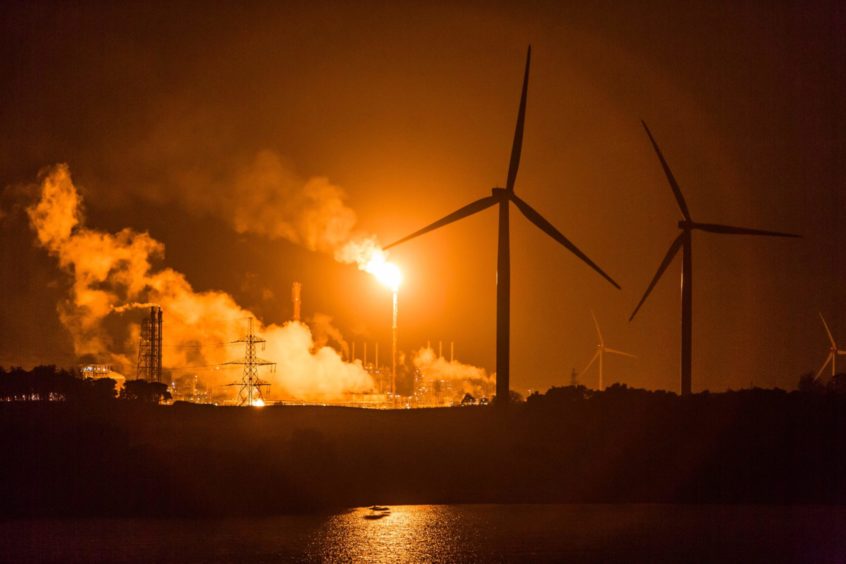
Communities close to the petro chemical plants at Mossmorran have been warned to expect flaring as a £140million upgrade of the processing plant gets set to begin in earnest.
ExxonMobil, which operates the Fife Ethylene Plant, say preparations will begin on April 8 ahead of a planned stand down of its plant operations on April 12.
The £140m investment will involve around 1,000 workers while the work on the NGL plant is expected to involve around 60 contractors who will work in line with Scottish Government guidance ensuring safe working practice as part of the Covid restrictions.
Exxon has warned the public that use of the elevated flare will be required on April 12 as well as the ground flares for two days afterwards.
The controversial plant at Mossmorran has had a troubled history with flaring problems over the last few years.
A spokesperson said: “We are confident the major upgrade project will help reduce the frequency of flaring by improving operational reliability.”
Fellow site operator, Shell, will also close the NGL plant to allow for a detailed inspection and multi-million-pound upgrade of the site.
In a statement, the company said: “We plan to use the Fife NGL elevated flare for low volumes of ethane between April 11 and 15, and then the ground flares between April 15 and 18 as we shut down Fife NGL plant processing so that we can begin work safely.
The multi-million-pound upgrade is expected to increase efficiency and reduce flaring in the future.
“The ground flares are less visible during the day but can cause a glow to be seen locally at night.
“We then plan to reintroduce volumes to the plant on 6 May, and use the Fife NGL elevated flare for low volumes of ethane through the month of May.
“This is to enable methane gas to be separated at St Fergus Gas Plant for the National Grid to supply homes, businesses and power stations at a time when this supply is needed and for the Fife NGL plant to continue the supply of propane, butane, and gasoline that thousands of customers rely on.”
Craig Burnett, Shell’s NGL plant manager, added: “We have taken steps to minimise the volume of product that must go to the flare, and it will be a tiny volume of the reduced flow into the plant.”
He also moved to reassure locals that this flaring would be carefully controlled by both operators and that there would be no risk to the local community.